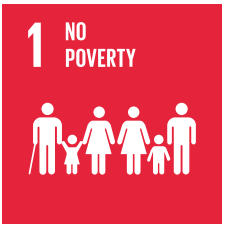The Fall 2024 World Bank Lebanon Economic Monitor projects a 5.7 percent GDP contraction in 2024 due to the escalating conflict, with USD4.2 billion lost in consumption and exports and USD3.4 billion in infrastructure damages.
Wash Cluster
Afghanistan continues to grapple with the consequences of four decades of conflict, entrenched poverty, climate-induced crises, and barriers to women’s equality and participation in public life. The economic downturn following the political transition in August 2021 – which coincided with a suspension of large-scale bilateral development cooperation on which the Republic DEPENDED HAS exacerbated underlying fragilities, including limited livelihood opportunities for both urban and rural populations alike. Despite the significant reduction in active hostilities, Afghanistan remains primarily a protection emergency characterized by high-levels of protracted displacement, mine and explosive ordnance contamination, restrictions to freedom of movement, increased risk of gender-based violence (GBV), child labour, early marriage and increased needs for mental health and psychosocial support. At the same time, despite the withdrawal of international forces, Afghanistan is not immune to geo-political and regional dynamics with 1.9 million Afghans having returned to the country so far in 2023, including more than 471,000 from Pakistan since 15 September. Additionally, severe climate change effects have precipitated a widespread water crisis that leaves no corner of the country untouched, and has generated new food, health and nutrition needs. Lying on numerous fault lines, Afghanistan also remains vulnerable to earthquakes, having experienced nearly 400 in the past year including three 6.3 magnitude shocks in Herat Province in October, contributing to increased shelter needs. The exclusion of 1.4 million girls from secondary school, combined with low literacy rates overall, means that education needs persist and remain a critical priority.
Ownership type
Collective sites established in communal and state-owned premises should be prioritized for repairs and
upgrades, as these properties align with government and local self-governance oversight, ensuring
accountability and complementarity to state efforts. Sites under communal or state ownership are
considered to offer more security of tenure for IDPs because authorities are directly responsible for
safeguarding the displaced populations residing there. While privately owned sites may be included in
the official government list, investing in them carries additional risks, such as potential disputes with
property owners and a lack of long-term guarantees. To mitigate these risks, partners should verify
ownership documents, ensure proper legal agreements, and prioritize measures that secure tenure for
site residents.

Access to services, markets, livelihoods, and local integration
Collective sites in urban and peri-urban areas, which provide better access to essential state services
such as education, healthcare facilities, pension offices, administrative centers, transport networks, and
proximity to markets and livelihood opportunities for displaced households, should be prioritized for
interventions. For rural locations, prioritization should be based on a comprehensive analysis of service
availability and the potential for local integration of the displaced population.


